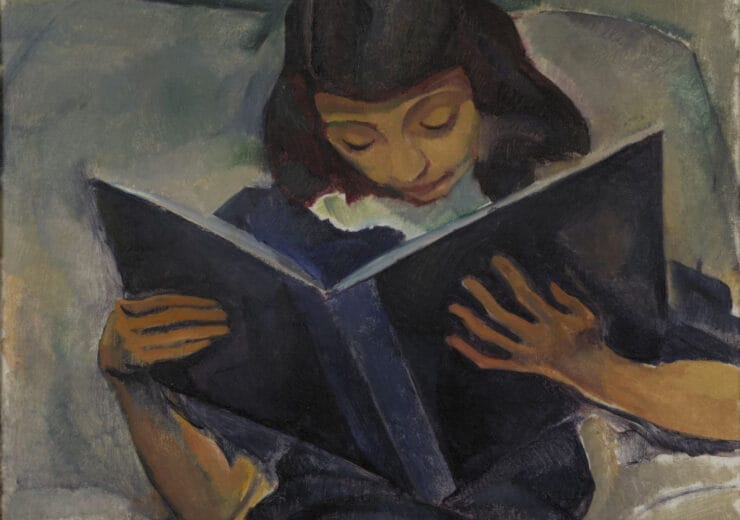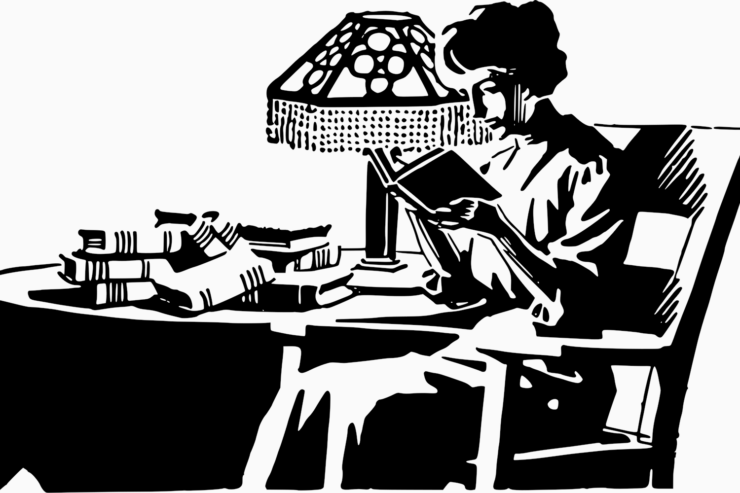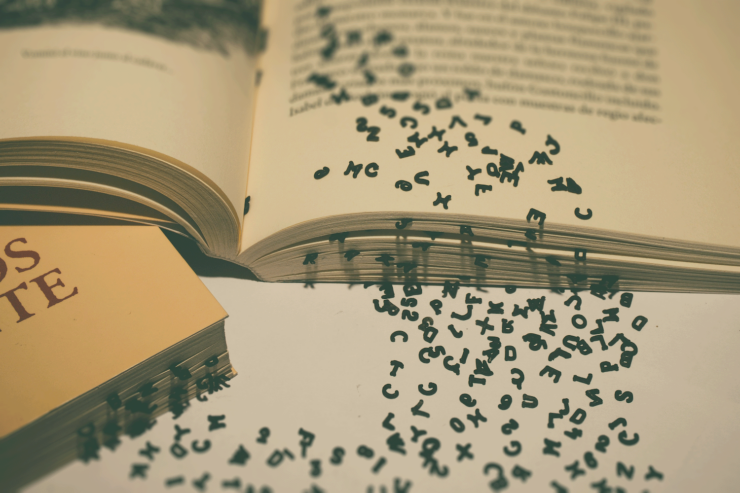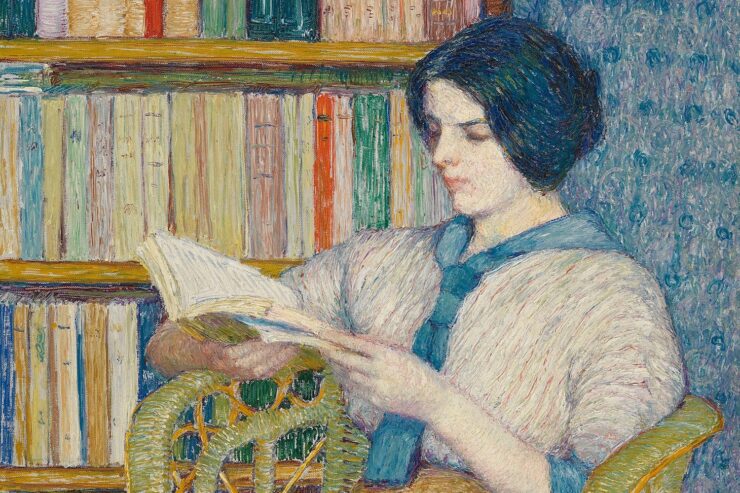At some point in my twenties I broke up with the concept of a guilty pleasure. I had heard enough from guys who wanted to try to shame me for liking bands they didn’t think were good, or for reading books they didn’t think were important enough; I decided that I was going to like what I liked, without feeling guilty about that enjoyment. I enjoy bands that aren’t cool and I love the kind of off-brand candy that comes in a see-through bag for 59 cents. Why feel guilty?
There are plenty of reasons to have complicated relationships with things, though, especially art. There are authors we grew up reading or once loved who turned out to be terrible people. Filmmakers who make beautiful movies through which a thick misogynist streak runs. Musicians who also turn out to be real dicey people. The art is still there, speaking to us, and while sometimes you can put aside the ugly bits, sometimes you just can’t. Art is made by complex, flawed humans; experiencing it is not often simple. Complicated relationships are to be expected. (Claire Dederer wrote a whole brilliant book, Monsters, on this topic.)
But there are still books I feel weird talking about. Not guilty. Not bad. Maybe just … a little self-conscious. Squirmy. And that is all I’ve been reading lately.
I suspect a lot of readers have these books, somewhere in their shelves, their ereaders, or just their memories. A friend told me she’s not adding her current reading to Goodreads. She’ll talk about her historical smut binge openly, but listing them? That’s something else. (This is also where having a private reading spreadsheet comes in handy! Easy to be honest when no one else is judging you on it.) She doesn’t feel guilty about those books. She just feels weird about it.
People feel weird about all kinds of things. My self-conscious reads might be totally unremarkable to you, and vice versa. One week’s self-consciousness might turn into another week’s sense of pride. Sometimes I don’t want to admit how many times I’ve read Wicked, because people think the book is the musical, and they feel a certain kind of way about that. Sometimes I might tell a whole Zoom full of strangers that it’s one of my favorite books.
Sometimes I might tell anyone reading this column that I have been veering dangerously near the self-help section.
It’s not self-help exactly. It’s also not craft books. I have been reading all those books, those many, many books, that are about writing when you’re not writing. Doing the things you want to be doing that you’re for some reason not doing. Do you know these books? The many variations on The Artist’s Way. Other writing books that are more touchy-feely than I want to admit to liking. Books with “art” and “life” in the titles.
I respect these books. I respect a lot of books in the self-help section, to be honest, because everyone needs to handle their shit, and some people have written really good books on the topic. (Not all of them are very good, but I challenge you to find any section or genre in which all the books are good.)
There are not, alas, many craft-of-writing books that connect directly to SFF, though there are some. (Delany and Le Guin come to mind.) But there are times when I need to come at a topic sideways. When there is something no longer on my mind but in my mind, some embedded thought I can’t quite access, that I need to read around it. Maybe it’s the mental equivalent of a hot compress, or a hot bath that draws the soreness out.
So I am reading to tug at a thought. My thought is about stories, and how they work, but I don’t want to approach it head-on. I’m treating it like a skittish cat: slow steps, one hand out, maybe a treat somewhere in the process. I’m reading books like Make Your Art No Matter What, books that tell me things I already know but do not seem to be putting into practice. And I’m reading slightly less squirmy books, too, like Jane Smiley’s Thirteen Ways of Looking at the Novel, which the Pulitzer Prize-winner wrote when she found herself blocked while writing fiction. (It really does happen to everyone.)
It seems to me that the whole idea of the guilty pleasure stems from the idea that we’re liking things we’re not supposed to like. That “supposed to” can come from anywhere—friends, pop culture, highbrow notions, family, education, you name it. To plenty of readers, Star Wars novels would be a source of guilt. Or formulaic thrillers, or spy novels, or romance. Anything not capital-L Literature has been scorned by someone, somewhere. There are those who scorn books about books, books about writing, books about figuring out better ways to make your way through the world.
But the squirmy-awkward feelings that appear around certain other kinds of books—that comes from inside. When I’m reading something and I feel weird about talking about it, it’s not because it’s hard or complex or weird or unusual; it’s because it’s too personal. Too close to the bone. It’s too much like an admission to say, “I’ve been reading books about how people make stuff and wrangle their daily lives at the same time.” Would I be reading that if I didn’t want to be doing it? There’s so much pressure to just do stuff, as if there aren’t a thousand hurdles, external and internal, in every road. If you are a just do-er, that’s very nice for you. If you are not, you might want to read about how people get that way. And it might feel sticky and weird to admit that you are trying to change, fix, adjust, just plain work on something so intimate.
I am squirming while I write this. Squirming. But what I write about in this column is the reading life, and sometimes the reading life is not just enjoying books, organizing books, thinking about books, collecting books, getting rid of books, getting new books, eventually reading those books, writing about those books, and then repeating the process until the eventual decay of the universe (after which those stacks of books may still exist; who can say?). At times, reading is weird, or hard, or personal; at times it becomes something even the most passionate and extroverted reader finds difficult to discuss. What am I reading? I’m reading books about how I want to restructure my life. No big deal, right? Totally simple stuff!
Really, I’m always reading books about how I want to restructure my life. A novel is an opportunity to consider how other people live. They might live in a magical country or aboard a starship, but they still live: they make choices, interact with other people, love, try, fail, succeed, struggle, grow, stagnate. I also get squirmy about the discussion about whether reading makes you a better person. That seems a touch grandiose. But you will find things you didn’t know or recognize or understand in books—including the self-helpy ones, the squirmy ones, the ones you don’t want to talk about. What you do with the things you find is up to you.















This is a good concept that needs a short term for it (like “guilty pleasure”, but not that.) I have a bunch of books I read that I don’t consider ‘guilty’ pleasures any more even though I know they might not be objectively ‘good’, I usually refer to them as popcorn but someone objected to that once.
I gotta tell ya, the group of people I work with at my local bookstore are incredible because we can all discuss our current pet kinks in reading without shame. There might be questions, but there’s never shame. It’s so enormously liberating to have someone come up to me and ask how my latest shape-shifter smut book is because she really cannot wait to know, and I can’t wait to find out what she’s fished from the depths of the Kindle Unlimited catalogue. There’s always so much cackling!
There’s a “book tube” ritual with the appropriately ugly name of something like Garb-August (can’t attest to the spelling), whose participants set aside a month each year to revel in dreadful literature. The youtube host I happened upon chose Thongor by Lin Carter, trash fantasy if ever there was.
Thanks, Skallagrimsen! I’m going to read Thongor.
I have, what I call, break books. Some might call these guilty pleasures I suppose. They are often urban fantastical romance and are easy reads. I can’t read a dense epic fantasy or space opera all the time. So I like having ‘break’ books that divide my time equally and allow my brain/emotions some recovery.
I also own all of Laurel K. Hamilton, Charlaine Harris, and other romance writers works that are smutty, gory, indulgent, or otherwise deemed ‘lesser fiction’.
I also have lots of teen/YA fantasy or sci-fi on my shelves. From Sarah J. Maas to Mercedes Lackey that many would also deem inadequate.
While these may not be celebrated in high literary classes, but I believe there is space for any and all kinds of fiction in the market.
I think “guilty pleasure” as something you’re “supposed to” have higher or purer tastes than [thing]; generally like enjoying cheez wiz when you’re supposed to prefer goat cheese.
Things you’re not supposed to need, or not supposed to be interested in [not in a “you shouldn’t be interested in that junk food” way but in a different way] do hit differently from “guilty pleasure” – it’s a different kind of self-revelation/identity question. There can be some crossover, because some types of self help or nonfiction books are a different kind of addictive popcorn to some people (esp. enneagram-ish stuff), but when you’re actually seeking answers and solutions to questions you feel like you shouldn’t be having, it’s different from seeking book junk food.
And oy, so many self-help books are so bad except for these one or two nuggets of good stuff, but it’s really good stuff, but you can’t recommend the book as a whole because it’s junk, but you want people who need those nuggets to get them… anyway. I have a complicated relationship with business/self-help/pop-psychology/pop-whatever-ology nonfiction; I have yet to read one that isn’t significantly awry (usually a case of inaccuracy, occasionally just overstatement or a problematic lack of balance), and yet there are useful bits in most (albeit not all) books. Writing self-help books might be better on average, but I don’t know…
May you find a smooth path with many good books on it, leading to the best destination. :-)
I’d be happy to scorn capital-L Literature! You know, for balance. ;)
Definitely agree about retiring the term “guilty pleasure.” I threw out all the self-imposed and perceived-social-rules about reading a few years ago and started reading a lot more at that point, of wider variety, and with much greater enjoyment. Now I make it the book’s responsibility to get and keep my attention.
I really enjoy your thoughts on this! And added a couple you mentioned to my reading list, which I may or may not ever get to. (No rules! So freeing!)
Every once in a while when I think I’ve done enough ‘good’ reading, I relax with the Notorious Marchioness of B–, aka Clorinda in the Comfortable Courtesan series (the first 12 mainly, since the add-ons are starting to run dry for me). Then it’s back to books like 1177 (mainly composed of footnotes if you ask me) or A Viking Odyssey (a rather cursory look at the world in the year 1000). Oh, let’s be honest, I’m marking time till MENEWOOD comes out…
Is this really even a thing anymore?
I’ve been reading comics sense I was 4 and I grew up in the 70’s and 80s. I can’t say I really hid my love of comics but I most definitely wouldn’t advertise that fact. I had one friend in grade school that liked comics too, or rather admitted to it. Now, I’m 54 and seems like dang near everyone now admits to being comic book fans. (Where were ya’ll when I was a kid?)
In my teen years, via Howard and Conan, I became a huge Sword and Sorcery fan. No one seemed to differiate between fantasy and S&S back then. It was bad enough to be a dude that reads, let alone, read fantasy or even worse a subgenre that brings to mind bad B flick 80s movies. Now I find out there’s been whole bunch of us fans of S&S out there all along. And guess what? A lot of them are Metal heads just like me!
Celebrities host D&D games for crying out loud and post about it
It’s ok to nerd out to whatever you’re into anymore. The only people that judge are backward jerks anyways so who cares?
I find strict materialism, with no belief in literal magic, not one bit, to be very comforting. It allows me, when I can do it—for I am all-too-human, and often believe in untrue or unverifiable-from-evidence things—to think anything, read anything, feel anything, watch anything, listen to anything, and know that as long as such does not influence me enough to do anything I consider wrong, there’s no problem.
Autism may help.
(In social interactions, words are often [usually?] definitely not ‘just words’…yet another superiority of reading when compared to social interactions.)